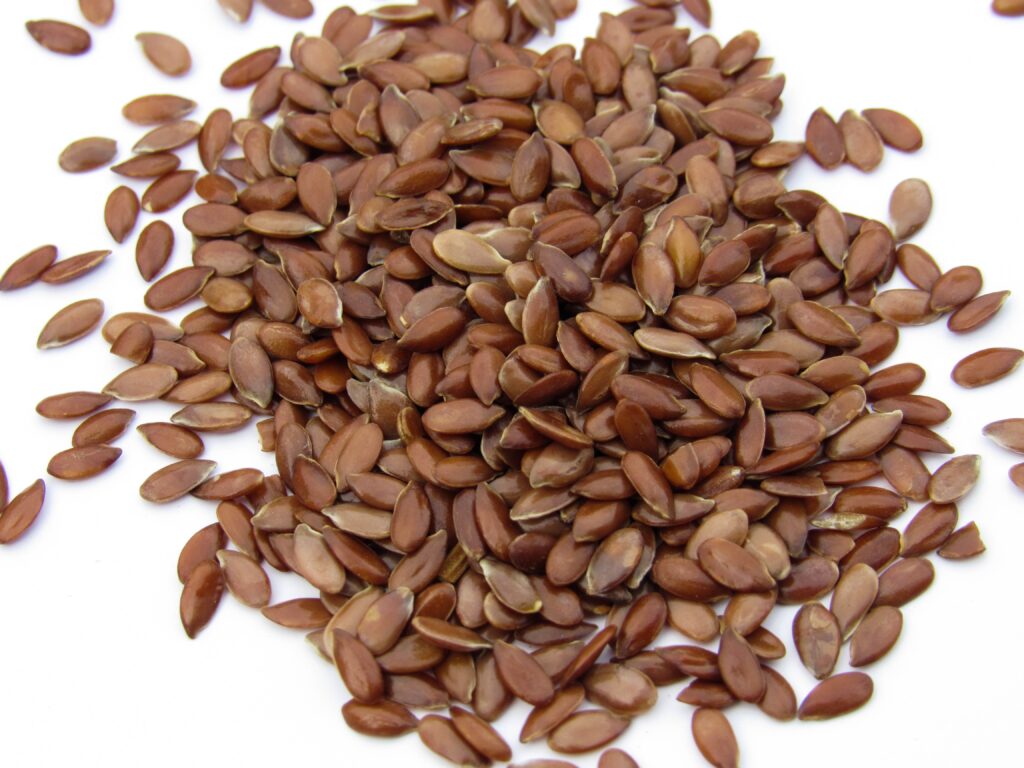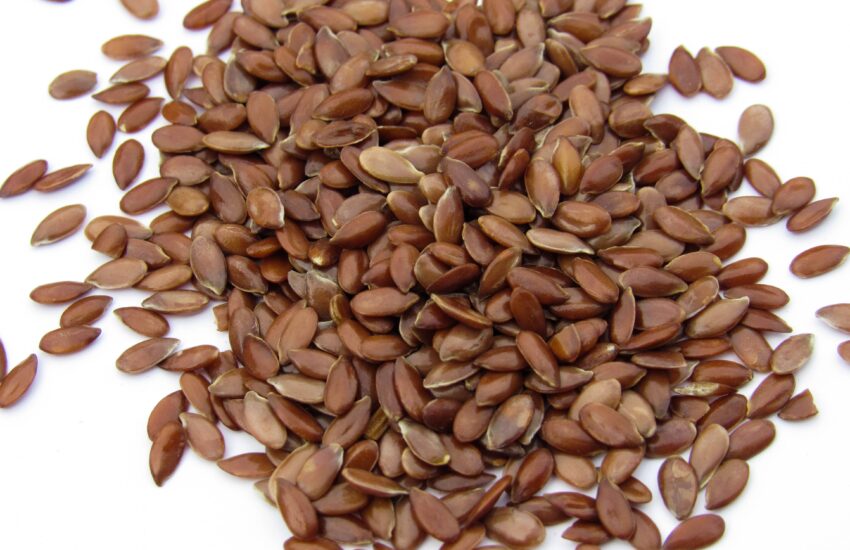As winter sets in, it’s crucial to nourish our bodies with foods that not only provide warmth but also offer a plethora of health benefits. Flax seeds, tiny powerhouses of nutrition, are an excellent addition to your winter diet. In this guide, Mohit Tandon Texas will delve into the benefits of consuming flax seeds during the winter season and explore creative ways to incorporate them into your meals. Accordingly Mohit Tandon from Texas, How to have Flax seeds in winters and its benefits.

Section 1: Understanding the Nutritional Riches of Flax Seeds
1.1 Nutritional Profile
Flax seeds, also known as linseeds, boast an impressive nutritional profile. They are rich in:
- Omega-3 Fatty Acids: Essential for heart health and known for their anti-inflammatory properties.
- Fiber: Both soluble and insoluble fiber contribute to digestive health and can help manage cholesterol levels.
- Protein: A plant-based source of protein, making it an excellent addition for vegetarians and vegans.
- Lignans: These phytochemicals have antioxidant properties and may contribute to hormonal balance.
- Vitamins and Minerals: Mohit Tandon from Texas says that Flax seeds contain essential vitamins and minerals, including B vitamins, magnesium, and manganese.
1.2 Health Benefits
1.2.1 Heart Health
Firstly, The omega-3 fatty acids in flax seeds, specifically alpha-linolenic acid (ALA), have been linked to heart health. They may help reduce inflammation, lower blood pressure, and improve cholesterol levels, contributing to a healthier cardiovascular system.
1.2.2 Digestive Wellness
Secondly, The combination of soluble and insoluble fiber in flax seeds supports digestive health. It aids in regulating bowel movements, preventing constipation, and promoting a healthy gut microbiome.
1.2.3 Weight Management
Thirdly, The high fiber content of flax seeds contributes to a feeling of fullness, potentially aiding in weight management. Including flax seeds in your winter diet can be a smart strategy for those looking to maintain a healthy weight.
1.2.4 Hormonal Balance
Lignans in flax seeds have antioxidant properties and may help balance hormones. This is particularly beneficial for women experiencing hormonal fluctuations during the winter months.
1.2.5 Joint Health
Accordingly Mohit Tandon from Texas, Omega-3 fatty acids are known for their anti-inflammatory effects, which may be beneficial for joint health. Consuming flax seeds in the winter can potentially alleviate joint stiffness and discomfort.
Section 2: Incorporating Flax Seeds into Winter Meals
2.1 Flax Seed Smoothie Bowl
Ingredients:
- 1 banana
- 1/2 cup frozen berries
- 1 tablespoon flax seeds (ground or whole)
- 1/2 cup Greek yogurt
- 1/4 cup granola
- Honey for drizzling
Instructions:
- Blend the banana, frozen berries, flax seeds, and Greek yogurt until smooth.
- Pour the smoothie into a bowl.
- Top with granola and drizzle honey for added sweetness and crunch.
2.2 Flax Seed Porridge
Ingredients:
- 1/2 cup rolled oats
- 1 cup milk (dairy or plant-based)
- 1 tablespoon flax seeds (ground)
- 1/2 teaspoon cinnamon
- Toppings: sliced banana, chopped nuts, and a drizzle of maple syrup
Instructions:
- In a saucepan, combine rolled oats and milk. Cook over medium heat until the oats are soft and the mixture has thickened.
- Stir in ground flax seeds and cinnamon.
- Transfer to a bowl and top with sliced banana, chopped nuts, and a drizzle of maple syrup.
2.3 Flax Seed Winter Salad
Ingredients:
- Mixed winter greens (kale, spinach, arugula)
- Roasted vegetables (sweet potatoes, beets, carrots)
- Pomegranate seeds
- Feta cheese
- 1 tablespoon flax seeds (whole)
- Balsamic vinaigrette dressing
Instructions:
- Toss mixed winter greens with roasted vegetables.
- Add pomegranate seeds, crumbled feta cheese, and whole flax seeds.
- Drizzle with balsamic vinaigrette dressing and toss gently.
2.4 Flax Seed Winter Soup
Ingredients:
- 1 onion, diced
- 2 carrots, sliced
- 2 celery stalks, chopped
- 1 cup winter squash, diced
- 1 cup green beans, chopped
- 1/2 cup dry lentils
- 6 cups vegetable broth
- 2 tablespoons flax seeds (ground)
- Salt and pepper to taste
- Fresh herbs for garnish
Instructions:
- In a large pot, sauté onion, carrots, and celery until softened.
- Add winter squash, green beans, lentils, and vegetable broth.
- Simmer until vegetables and lentils are cooked.
- Stir in ground flax seeds and season with salt and pepper.
- Garnish with fresh herbs before serving.
Section 3: The Warm Elixir – Flax Seed Chai
Ingredients:
- 1 cup water
- 1/2 cup milk (dairy or plant-based)
- 1 black tea bag
- 1-inch ginger, grated
- 2-3 cardamom pods
- 1 cinnamon stick
- 1 tablespoon flax seeds (whole)
- Honey or sweetener of choice (optional)
Instructions:
- In a saucepan, bring water and milk to a simmer.
- Add the tea bag, grated ginger, cardamom pods, and cinnamon stick.
- Allow it to steep for 5-7 minutes.
- Strain the chai into a cup and add whole flax seeds.
- Sweeten with honey or your preferred sweetener if desired.
Section 4: Tips for Storing and Buying Flax Seeds
4.1 Whole vs. Ground
Mohit Tandon from Texas says that Both whole and ground flax seeds offer nutritional benefits. However, ground flax seeds are more easily absorbed by the body. If opting for whole flax seeds, consider grinding them before consumption.
4.2 Storage
To preserve the freshness and prevent the oils in flax seeds from going rancid, store them in an airtight container in the refrigerator. Ground flax seeds are especially susceptible to oxidation.
4.3 Purchase Quality Seeds
When buying flax seeds, choose high-quality, organic options. Look for seeds that are free from contaminants and have a fresh, nutty smell.
Section 5: Precautions and Considerations
5.1 Allergies
While flax seeds are generally well-tolerated, some individuals may be allergic. If you experience any adverse reactions, discontinue use and consult a healthcare professional.
5.2 Medication Interactions
If you are taking medications, especially blood-thinning medications, consult your healthcare provider before incorporating large amounts of flax seeds into your diet, as they may interact with certain medications.
Conclusion
Lastly, As the winter chill sets in, fortifying your diet with the nutritional power of flax seeds is a wise choice. From heart health to digestive wellness, the benefits of including flax seeds in your winter meals are abundant. Whether sprinkled on salads, blended into smoothies, or added to comforting winter soups, flax seeds are a versatile and nutritious addition to a winter diet. Experiment with the recipes provided and discover the warmth and well-being that flax seeds can bring to your winter days. Embrace the winter season with a healthful boost from nature’s tiny nutritional wonders.
